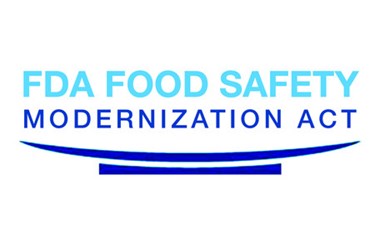FDA Rolls Out "Year Of The Food Safety Modernization Act"
By Melissa Lind, contributing writer

With a declaration that 2015 is “the year of FSMA,” the Food and Drug Administration rolled-out plans for implementation of the legislation’s final provisions. The plan was presented to members of the food industry at the FDA’s FSMA Kickoff Meeting in Washington, D.C.
The Food Safety Modernization Act (FSMA) is the most-sweeping change to food regulations since the Food Drug and Cosmetic Act of 1938 was passed. FSMA was signed into law by President Obama in 2011 and has been implemented in sections over the past four years. The next 13 months will bring the final passages into action.
At the kickoff meeting, the agency held a series of discussion sessions which gave food industry members the opportunity to express concerns and ask questions. Domestic food processors and packagers questioned the agency about the new inspection systems, importers have concerns about evaluation processes, and growers want to know about how the agency will keep the system consistent. All U.S. food companies will be expected to comply within five years of final rule deadlines. Specifics of sections to be finalized are summarized below:
August 30, 2015
Preventive Controls for Animal Food — standardizes animal food production to current good manufacturing practice (cGMP) requirements.
Deadline for compliance after publication:
- Businesses with over $2.5 million in annual sales and more than 500 employees — 1 year
- Small businesses with fewer than 500 employees — 2 years
- Very small businesses with less than annual sales of $2.5 million — 3 years
Preventive Controls for Human Food — provides specifics of product testing, environmental monitoring, and supplier controls
Deadline for compliance after publication:
- Businesses with more than 500 employees — one year
- Small businesses with fewer than 500 employees — two years
- Very small businesses with less than annual sales of $1 million — three years
October 31, 2015
Produce Safety Rule — exempts farms with less than $25,000 in annual sales. It also sets standards for growing, harvesting, holding, and packing produce on both domestic and foreign farms.
Deadline for compliance after publication:
- Farms with over $500,000 in annual sales — two years
- Farms with $250,000-500,000 in annual sales (small businesses) — three years
- Farms with $25,000-250,000 in annual produce sales (very small businesses) — four years
- Water-quality standards and related testing compliance — two additional years after produce rule compliance date
March 31, 2016
Foreign Supplier Verification Program — holds importers accountable for ensuring that foreign food suppliers comply with standards for U.S. food producers.
Deadline for compliance after publication — 18 months for most importers
Third-Party Certification of Auditors for Foreign Suppliers — establishes a program for accreditation of third-party auditors inspecting and evaluating foreign food facilities and products.
The FDA has not established date, but said the program will be implemented “as soon as possible” after final rule is published.
Sanitary Transportation Rule — requires sanitary practices for food transport.
Deadline for compliance after publication:
- Motor carriers with over $25.5 million in annual revenue or with more than 500 employees — one year
- Small motor carriers with less than $25.5 million in annual revenue and fewer than 500 employees — two years
May 31, 2016
Intentional Adulteration Rule — requires implementation of food defense plans to prevent intentional actions that may cause public harm.
Deadline for compliance after publication:
- Business with more than 500 employees and more than $10 million in annual sales — one year
- Small businesses with less than 500 employees — two years
- Very small businesses with less than $10 million in annual sales — three years
